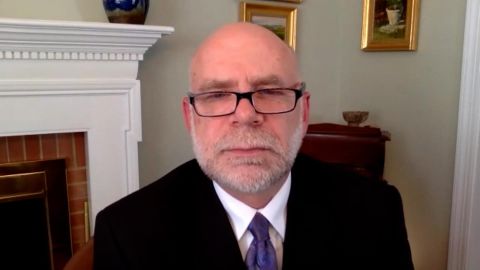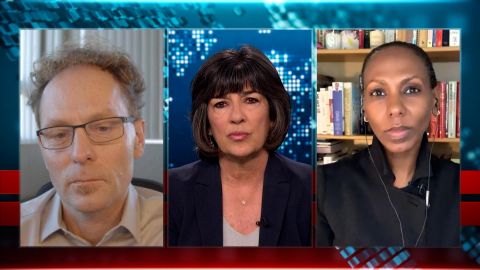Read Transcript EXPAND
SKYE FITZGERALD: Well, this war has really devastated an entire generation. Any child that’s been born during the course of this war over the last six- plus years is at risk of starving to death. And so both Dr. Alsadeeq and nurse Mekkia are really on sort of, in their own way, the front lines of this battle to save an entire generation. And that takes — it sort of plays out in many different ways. They will do anything in their power to meet the needs of every child that not only arrives on their doorstep, but, when they receive a call from a family in a distant village, they will sometimes send out one of their staffers on a (INAUDIBLE) for example, to actually pick up that child and bring them through the multiple checkpoints for treatment, and then make sure that they receive the treatment, so they can they can survive. So, they’re always finding a way to meet the need, no matter what the challenges are that the — sort of the war places in front of them.
CHRISTIANE AMANPOUR: Let me turn to Nima, my colleague. Nima, you have covered a lot of these desperate situations. I have too. I remember the famine in Somalia. Before my generation, it was the famine in Ethiopia. They got a lot of attention. And there was intervention certainly in Somalia. And then there, remember, Live Aid for Ethiopia. It got a lot of world attention because of journalists and because the journalists were able to tell the story. What has been the most difficult aspect for you, in today’s environment, of trying to tell this story?
NIMA ELBAGIR, CNN SENIOR INTERNATIONAL CORRESPONDENT: We were refused access repeatedly by the internationally recognized government. The Saudi- backed, Saudi-led coalition is supportive of that. The U.S. is incredibly supportive of it. And yet it was allowed to refuse us access for eight months, because of our previous reporting on the humanitarian situation on the ground and on the fact that both sides, both the internationally recognized government and Ansar Allah, the Houthis, are using their people as pawns. But it is particularly egregious when it is a government that is recognized by the global community to ban journalists access. So we had to take extreme measures, and we had to travel into Yemen by boat in order to get in and see what was happening there.
AMANPOUR: So, let me just play this clip, then, because you set it up perfectly. This is you and your team on the boat.
ELBAGIR: The derelict coastline of the north of Yemen. Rusting hulks tell a story of war, blockade and devastation. For years now, the Houthi-controlled north has been increasingly isolated from the outside world. We secretly traveled through the night by boat after our previous reporting here led the government to deny us entry.
About This Episode EXPAND
Skye Fitzgerald; Nima Elbagir; Blake Bailey; Thomas Roberts. The interview with author Blake Bailey that appears in this program was conducted and broadcast prior to the allegations of sexual assault becoming public.
LEARN MORE

